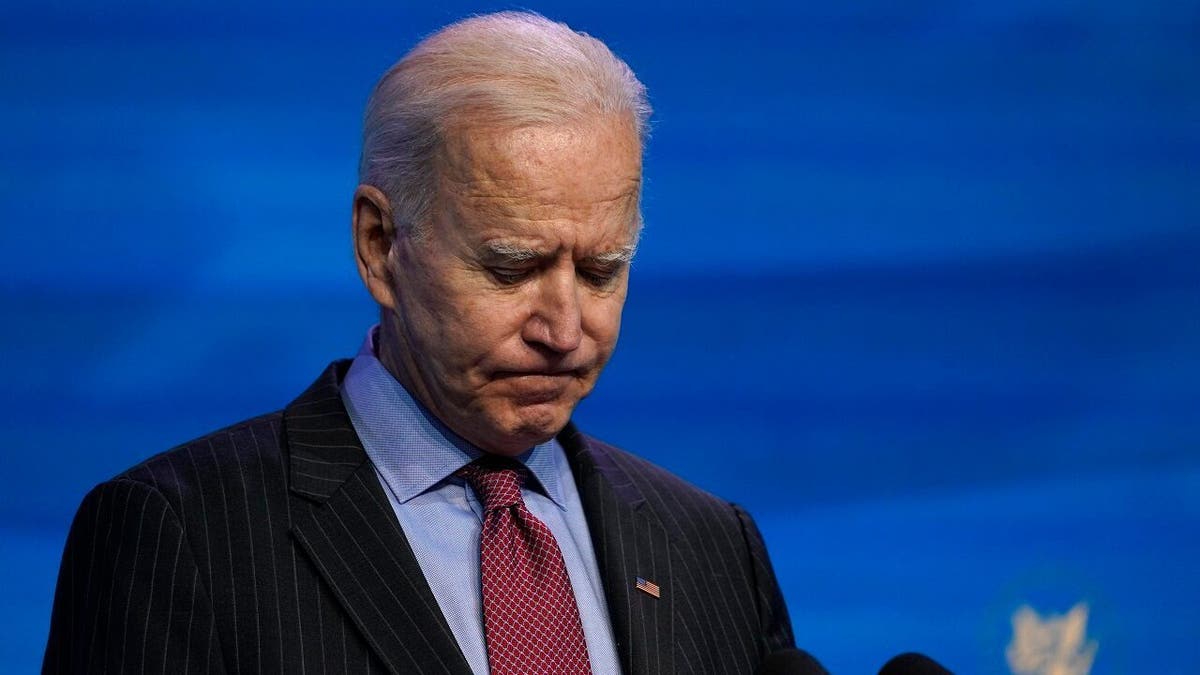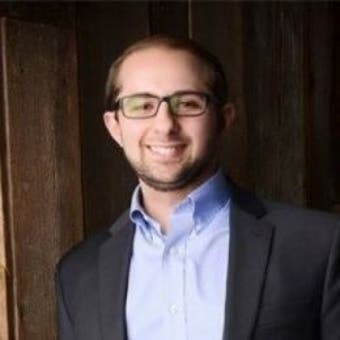Biden already got ‘political benefit’ of student loan handout: Pete Hegseth
‘Outnumbered’ hosts discuss consequences of President Biden’s prolonged battle over his student loan handout as the Supreme Court delays hearings on the loan cancellation until February.
The Supreme Court just agreed to hear a second challenge to President Joe Biden’s plan to "cancel" student loan debt for millions of borrowers, setting the stage for an intense legal battle in early 2023.
In August, the White House announced that it would forgive $10,000 for most borrowers and up to $20,000 for Pell Grant recipients. Biden instituted his debt cancelation plan using executive action, not by convincing Congress to pass a law, a move Republicans say is an unconstitutional overreach of presidential power.
The Supreme Court should topple Biden’s radical attempt to cancel student loan debt, but that’s not the only unconstitutional student loan policy the nation’s highest court should consider. Biden’s latest "freeze" on student loan payments is also likely illegal, and thus should be struck down as well.
On November 22, the Biden administration once again extended its pause of all federal student loan payments. Under the extension, more than 40 million Americans will not be required to make payments on their student loans until as late as September 2023, regardless of how much money a borrower earns or how much wealth he or she has amassed.

President Joe Biden keeps trying to extend student loan non-payment. It's bad policy and illegal. (AP Photo/Susan Walsh)
The pause on federal student loan payments began in March 2020, when President Donald Trump and a Democrat-led Congress allowed borrowers to temporarily avoid payments under the CARES Act. The payment freeze was designed to help borrowers through the tumultuous economic crises caused by the COVID-19 pandemic and state and federal governments’ decisions to shut down much of the US economy.
The payment pause was only supposed to last until September 30, 2020, but it has since been extended eight times, six by the Biden administration.
The freeze on federal student loan payments is terrible public policy. Not only has it cost taxpayers $155 billion, it has also given millions of borrowers, many of whom are in their twenties and thirties and never lost their jobs during the pandemic, the false belief that they shouldn’t have to pay back their debts. Incredibly, it’s been nearly three years since borrowers have been required to make payments.
Perhaps most outrageous of all, under the provisions of the student loan payment freeze, non-payments are being counted as "payments" toward various student loan forgiveness plans. The most notable is the Public Service Loan Forgiveness (PSLF) program, which allows borrowers to receive total student debt forgiveness after making 120 monthly payments while working for a government agency or nonprofit organization — no matter how much debt is owed.
Even during the height of the COVID-19 pandemic, it was unreasonable to argue that every single federal student loan borrower had "suffered direct economic hardship as a direct result" of the pandemic.
The payment pause is deeply unfair to Americans who have already paid back their student loans, worked their way through college, or who have not attended a college at all. But it’s made even more immoral by significant questions surrounding its lawfulness.
When the payment freeze under the CARES Act was supposed to expire in September 2020, the Trump administration extended the pause without a new law being passed by Congress. Instead, the Department of Education claimed it had the authority to continue the payment freeze under the HEROES Act of 2003, an argument the Biden administration has since adopted.
The HEROES Act was never intended to justify sweeping student loan payment pauses like those made by the Trump and Biden administrations. The members of Congress who wrote it were mainly concerned with helping military servicemen and other public servants in a time of war.
However, vague language in the act does permit the secretary of Education to "waive or modify any statutory or regulatory provision applicable to" student loans for those who have "suffered direct economic hardship as a direct result of a war or other military operation or national emergency, as determined by the Secretary.
A "national emergency" under the law is one formally declared by the president, such as the ongoing Coronavirus national emergency.
Even during the height of the COVID-19 pandemic, it was unreasonable to argue that every single federal student loan borrower had "suffered direct economic hardship as a direct result" of the pandemic. Many borrowers never lost their jobs, were able to save money by working from home, and some even earned more money during that period. But as difficult as it was to make such an assertion in 2020 and early 2021, it has become virtually impossible to make a similar argument today.
There are absolutely no economic indicators that suggest that all, most, or even a sizable minority of borrowers are suffering as a "direct result" of the Coronavirus pandemic. There are more than 10 million job openings in America today, wages have increased since the start of the pandemic, and the lockdown of most of the U.S. economy has been over for more than a year. The unemployment rate is now 3.7%, about the same as it was in the several months prior to the 2020 pandemic, and total full-time employment is now higher than it was before the pandemic.
CLICK HERE TO GET THE OPINION NEWSLETTER
Just as importantly, millions of people with federal student loans are enrolled in income-based or income-driven repayment plans, which tie monthly payment amounts to income. These plans allow enrollees to "pay" as little as $0 per month if they lose their job, making it virtually impossible to argue that they have "suffered a direct economic hardship" that would justify having their student loan payments frozen. Any "hardships" that have occurred are already covered under the income-based payment model.

The Supreme Court has agreed to hear another challenge to President Joe Biden’s plan to ‘cancel’ student loan debt for millions of borrowers. (Emily Elconin/Bloomberg via Getty Images)
It is also possible that Biden’s practice of counting monthly non-payments as "payments" under the Public Service Loan Forgiveness program is illegal, since the HEROES Act says absolutely nothing about Public Service Loan Forgiveness. In fact, PSLF didn’t become law until 2007, four years after Congress and President George W. Bush passed the HEROES Act.
The CARES Act included such a provision, but the Congressional Research Service notes that it expired in 2020. After an exhaustive search, I can’t find a single reference by the Biden administration to another legal provision that would justify counting non-payments as "payments" for the purpose of debt forgiveness programs.
CLICK HERE TO GET THE FOX NEWS APP
It seems that for every part of Biden’s payment pause to be legal, the administration would have to successfully argue, for example, that a government employee earning a six-figure salary who did not lose his or her employment during the pandemic and has since moved three years closer to total student loan forgiveness under PSLF is today enduring a "direct economic hardship" related to the Coronavirus pandemic. If you believe that’s possible, I have a nice little bridge in Brooklyn that I’d be happy to sell you.
The seemingly never-ending payment "pause" isn’t just bad policy. It’s likely illegal, it’s just vote buying.












































